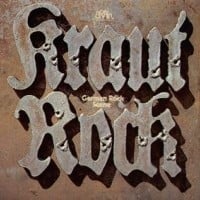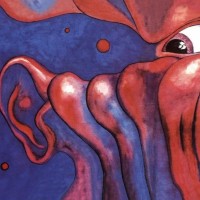Top 10 Progressive Rock Sub-Genres
Huge credit to the people over at the Prog Archives. You guys are geniuses.There's no doubt progressive rock is incredibly varied in its sound, and through time it's produced some of the greatest music artists of the modern era.
As prog is heavily varied, so are the sub-genres within it. Over the course of nearly 6 decades, we've seen a lot of sub-genres develop that each have their unique take on the genre.
So let's explore these sub-genres, and see which ones hold up best.
Eclectic prog is prog that takes sources from several different places, showing a wide range of styles. The term "eclectic" describes the surpassing/blending together of established genres and styles. The themes that lie within are a lot more varied, and the sounds can be considered those that are constantly evolving.
Most notable associated acts: Gentle Giant, King Crimson, Van der Graaf Generator
I really love the abrasive quality that many of these bands can have, deifnitely what makes 21st Century Schizoid Man a great song in any case
Symphonic prog is the biggest sub-genre in prog. While the mixture of different elements is present (mostly from classical), it's also to note that symphonic groups tend to create much longer songs, rely on a lot of keyboard sounds, and focus on explorative themes (mostly related to sci-fi and fantasy).
Most notable associated acts: Yes, Genesis, ELP
Great list! Although Pink Floyd is not just Space Rock.
Crossover prog is an interesting case. Bands of the genre will mostly take inspiration from more popular music, while still maintaining their progressive sound. Complexity, virtuosity, and use of modern tech to make certain sounds are things to describe this genre. Yet at the same time crossover prog utilizes traditional sounds and puts them together to make their own sound.
Most notable associated acts: Radiohead, Supertramp, The Moody Blues
Progressive metal. What it literally sounds like. It is a subgenre of progressive rock as much as it is a subgenre of heavy metal. It blends heavy, guitar-oriented metal music with complex arrangements, usually expressed through diverse instrumentation and often with odd-time signatures. Common, but not essential, are the frequent use of keyboards, concept lyrical themes and tracks of longer duration.
Most notable associated acts: Dream Theater, Riverside, Pain of Salvation
Great profession I must say
Tool and Opeth are great.

Avant-prog refers to any progressive rock artist with a strong leaning towards avant-garde and highly experimental approaches to music. The most common elements of avant-prog are the use of dissonance, experimental improvisation, polyrhythms, and unpredictable song arrangements. Most avant-prog artists are highly unique in sound and resist easy comparisons.
Most notable associated acts: Frank Zappa, Cardiacs, Univers Zero
Heavy prog draws as much influence from hard rock as it does from classic progressive rock. It essentially combines the guitar-based heavy blues of the 1960s with the symphonic movement of the 1970s. Although most groups outside of heavy prog are more renounced for their use of the keyboard, heavy prog is a lot more electric guitar driven.
Most notable associated acts: Rush, Procupine Tree, The Mars Volta

Godspeed You! Black Emperor, possibly the most influential band of this sub-genre, has made albums that have made me cry tears of both joy and sadness with little to no lyrics. That’s an impressive feat.
It's pretty amazing, no doubt about it!
Wait, this is a sub genre of Prog Rock?
Neo-prog initially described bands that were influenced by the symphonic sound, but it later changed. The most common aspects of neo-prog are the use of atmospheric guitars and synths, with a tendency towards floating synth layers and dreamy soloing.
Most notable associated acts: Marillion, IQ, Pendragon
To some, this could also be considered psychedelic rock. But let's just call it space rock. The pioneering acts of this genre used elements like repetitive hypnotic beats and electronic/ambient soundscapes as they moved away from the common musical approach. The synthesizer with its spacey patterns is a typical instrument of this genre. Guitars are preferably played with delay/echo effects in heavy use.
Most notable associated acts: Pink Floyd, Hawkwind, Eloy
Gotta love muse
Prog and folk. Two things that go together so well.
In the wake of the 1960s, a Folk revival started on both sides of the Atlantic, and got quickly linked with a protest movement, not always, but often linked to more left-wing tendencies. Prog folk will take its influences from...well, folk music. Most of the inspiration will come from many different genres around the world.
Most notable associated acts: Jethro Tull, Eden, Spirogyra
Comus, Tull, Spirogyra, some of my favourite groups of all time, and all in one genre!
Best one, honestly
Opeth enough said!
Canterbury bands employ a fusion of rock rhythms and jazz improvisation with intellectual song-writing and varying strengths of psychedelia. Although some Canterbury bands have amazing guitarists, the most common instrument is the keyboard.
Most notable associated acts: Caravan, Gong, The Soft Machine

This will piss off the Brits, but I think the Doors were the first proto-Prog band.
This is good but not prog Rock.It's a mix of Trap Rap and Heavy Metal